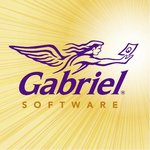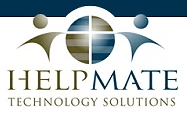Yes, one of the primary benefits of church administration software is that it can be accessible from a variety of devices and platforms. This means that it is not tied to a single device or operating system. Most church administration software is web-based, which means it can be accessed online via a web browser on any internet-connected device. This enables team members to collaborate using various devices while also providing convenient and flexible access.
List of 20 Best Church Management Software
Experience the ultimate donation and fundraising platform with Continue To Give. Our comprehensive solution is designed for churches, nonprofits, missionaries, and individuals. With convenient online and mobile giving options, customizable kiosks, se...Read More Continue To Give
A comprehensive and versatile software, Online Church Directory. With secure profile updating and access to comprehensive listings, it caters to a wide range of groups and offers customizable print options, all backed by dedicated customer support. S...Read More Online Church Directory
Elexio Database is Church Management Software designed to enhance your ministrys efficiency and strengthen your congregations engagement. With its customizable features and user-friendly interface, it simplifies administrative tasks, promotes transpa...Read More Elexio Database
OPRS is a project management solution that will transform your teams workflow. This software offers a user-friendly interface and customizable workflows to facilitate real-time collaboration. Boost productivity with advanced analytics and streamline...Read More OPRS
Gracelyis a web application that simplifies all aspects of connecting with members, managing finances, and coordinating events with ease. Keep everything in order from your phone or computer, no matter where you are. Discover the convenience and effe...Read More Gracely
DonorKite is a donation management software that caters to the needs of churches, non-profits, and charities. This efficient and user-friendly platform helps organizations effectively manage their donations and donors, making contribution tracking an...Read More DonorKite
iKnow Church is a software designed to help churches manage their daily operations with ease. Its features include communication tools, donation management, and event planning, making it the perfect solution to streamline tasks. The user-friendly mob...Read More iKnow Church
forBinary solution for streamlining your church management. This software empowers you to effortlessly create a customized, multilingual mobile app for your church, without the need for any coding knowledge. Elevate your churchs online presence with...Read More forBinary - Church Management
Planning Center is a church management solution for seamless event planning, team collaboration, and member involvement. With adaptable plans and full support, it caters to all church sizes, eliminating the need for multiple platforms. Say farewell t...Read More Planning Center
RDS Advantage is a church management solution designed to streamline membership and ministry tasks. Perfect for churches of all sizes, this powerful software offers comprehensive support and tools for efficient operations. Elevate your churchs produc...Read More RDS Advantage
UCare is a church management software designed to streamline daily operations for ministries of all sizes. Its user-friendly features, including attendance monitoring and event scheduling, facilitate effective communication and enhance safety and pro...Read More UCare
CristO is a church management solution! Streamline administrative tasks for your Diocese, Parishes, Families, Members, and Institutes with ease. Our cost-effective software promotes connectivity within your pastoral community, allowing you to stay co...Read More CristO
Pushpay is a specialized digital engagement platform for churches and parishes that offers a complete package of giving solutions, church management software, and high-quality live streaming services. Our mission is to support the growth of generosit...Read More Pushpay
GoDoChurch is a church management software. Our innovative web-based platform simplifies church administration with its mobile app, powerful messaging tools, and advanced search options. With customizable features and exceptional support, GoDoChurch...Read More GoDoChurch
Gabriel is asoftware solution for streamlined data management, seamless integration, and advanced analytics. Its user-friendly interface and flexible features make it the perfect tool for boosting workflow efficiency, increasing productivity, and gai...Read More Gabriel
Tabernacle is a Church Management Software designed to streamline and modernize every aspect of church administration. This powerful cloud-based solution is specifically developed for Pastors and their teams, making tasks like managing finances and m...Read More Tabernacle
GraceSoft Church Reservation solution for managing reservations at your church. This user-friendly system allows you to easily track attendance, check-ins, and seat reservations for services. Let members reserve their seats for upcoming services, sim...Read More GraceSoft Church Reservation
Church CRM from Hykez Technologies is a Church Management software designed for churches of any size. Simplify all aspects of your church administration with this robust and user-friendly CRM tool. Utilize its comprehensive features to effortlessly e...Read More Church CRM
Church Helpmate is the premier church management database software designed to simplify and elevate your churchs operations. This all-in-one solution combines efficiency, unity, and ministry involvement in a user-friendly interface, saving you time a...Read More Church Helpmate
IconCMO is a church management solution, designed to simplify administrative tasks. Easily keep track of families and their visits, manage outreach and follow-up efforts, and create a convenient online picture directory. Stay on top of important even...Read More IconCMO
Learn More About Church Management Software
- What Is Church Management Software?
- What Are The Recent Trends In Church Management Software?
- Benefits Of Using Church Management Software
- Important Factors To Consider While Purchasing Church Management Software?
- What Are The Key Features To Look For In Church Management Software?
- Why Do Businesses Need Church Management Software?
- How Much Time Is Required To Implement Church Management Software?
- What Is The Level Of Customization Available In Church Management Software?
- Which Industries Can Benefit The Most From Church Management Software?
- Conclusion
What Is Church Management Software?
Church Management Software is a complete solution developed to help churches and other religious organizations manage administrative activities more efficiently. It is easy-to-use software that automates a variety of duties such as member administration, event planning, donation monitoring, communication, and more. Churches and religious groups can have enormous numbers of members and volunteers, making it difficult to manage their information and communication.
All member data may be stored in a consolidated database using Church Management Software, making it easy to access and update. It reduces the need for manual record keeping, lowering the possibility of errors and saving time for church staff. Furthermore, Church administration Software makes event planning easier by including features like online registration, volunteer coordination, and calendar administration.
This makes it easy to plan and promote events in the church community. The program also includes communication features that allow the church to send out emails, text messages, and social media updates to keep members up to date on forthcoming events and other relevant information. Church Management Software also assists with financial management by offering options for tracking donations and online giving.
This makes it easy for members to donate while also allowing church officials to track donations and prepare tax records. One of the primary advantages of adopting Church Management Software is the ability to interact with other systems, such as accounting or bookkeeping software. This enables seamless data sharing while eliminating the need for human data entry and duplication.
What Are The Recent Trends In Church Management Software?
In recent years, the use of technology to manage church operations has gained popularity. As a result, the demand for effective and user-friendly church administration software has increased. In this buyer's guide, we'll talk about the current trends in church management software and how they can help your organization.
1. Cloud-Based Solutions: One of the most significant changes in church administration software is the transition to cloud-based solutions. Cloud-based software provides numerous advantages, including better access to data, increased collaboration among employees, and lower maintenance and update expenses. Furthermore, it enables church leaders to view their organization's data from anywhere, making it more easy and effective.
2. Mobile Accessibility: With the proliferation of smartphones and tablets, it's no wonder that mobile accessibility has become an essential feature of church management software. A smartphone app allows church members to instantly view event calendars, make donations, and sign up for service opportunities. This feature promotes improved involvement and communication between the church and its members.
3. Integrate: With Online Giving Online donating is becoming an increasingly important source of revenue for churches. As a result, several church administration software systems provide seamless connection with multiple online giving platforms. This feature streamlines the donation process and provides for more accurate tracking and reporting.
4. Enhanced Communication Tools: Effective communication is essential in every organization, and churches are no exception. Many church administration software packages now include comprehensive communication features like email and text messaging to help church leaders, members, and volunteers communicate more effectively. This function serves to keep everyone informed and involved in the church's events.
5. Data Analytics: In today's digital age, data rules, and church management software is no exception. Data analytics solutions can help churches acquire useful insights into their members' attendance, giving patterns, and levels of engagement. This information can assist make better judgments and customize initiatives to fit the requirements of the church community.
Benefits Of Using Church Management Software
Church management software provides several benefits to churches and religious organizations that want to optimize their administrative procedures and increase overall efficiency. It is a sophisticated tool that centralizes and automates a variety of functions, allowing churches to better manage their membership, money, events, and other critical areas of their operations.
We'll go over the primary benefits of adopting church management software so you can make an informed decision when choosing a solution for your congregation.
1. Efficient Membership Management: One of the primary benefits of adopting church management software is the ability to manage membership data efficiently. It stores all member information, including contact information, attendance records, and participation in activities or programs, in a single secure database. This allows you to easily track member involvement, monitor attendance patterns, and keep accurate data for future reference.
2. Simplified Communication: Church management software facilitates communication with church members, volunteers, and staff. Whether it's sending out mass emails or text messages, establishing online sign-up forms, or scheduling automated reminders, the program makes it simple to stay in touch with the entire congregation. This improves engagement and fosters a sense of community in the church.
3. Financial Management: Manually tracking church funds can be time-consuming and error-prone. Church management software makes financial management easier by automating operations like gift monitoring, budgeting, and report generation. This not only saves time and effort, but also provides accurate and transparent financial records, which are critical for fostering confidence within the congregation.
4. Event And Volunteer Management: Churches frequently host a large number of events and programs that require coordination and management. Church management software makes the process easier by allowing churches to build and manage event calendars, measure attendance, and delegate responsibilities to volunteers. This simplifies the planning process while also improving communication and collaboration among volunteers.
5. Online Giving: In this digital age, many people choose to donate and tithe online. Church administration software enables churches to provide online giving alternatives, making it easier for members to give financially. It also makes it easier to track donations and prepare tax records.
6. Data Security: Church administration software provides a secure environment for keeping sensitive member information. It also supports role-based access, which ensures that only authorized individuals can access critical data. This protects members' privacy and avoids potential data breaches.
Important Factors To Consider While Purchasing Church Management Software?
When it comes to choosing church management software, there are numerous critical elements to consider. The following are the most important aspects and factors to consider when making a decision:
1. Compatibility With Your Organization's Requirements: The first consideration when selecting church management software is whether it suits your organization's specific objectives and goals. Determine the tasks and procedures you want the program to manage, such as membership administration, event planning, and financial tracking. Look for software that provides adjustable features and options to meet your specific needs.
2. User-Friendliness: Church management software should simplify your life rather than complicate it. Choose a user-friendly interface that is simple for your employees and volunteers to utilize. The last thing you want to do is spend time teaching your team how to utilize the product.
3. Integration With Other Tools: Your church may already use accounting software or email marketing. Consider buying church management software that works flawlessly with these existing resources. This will help to streamline your procedures and prevent data duplication or errors.
4. Data Security: As a church, you must protect sensitive data such as member information and financial records. To safeguard the safety and security of your data, choose software that includes strong security features like encryption and regular backups.
5. Cloud-Based or On-Premises: Church management software is available in both cloud and on-premises configurations. Cloud-based software provides access from any device with an internet connection, whereas on-premises software gives for greater control and flexibility. Consider the demands of your organization and select the one that best meets your needs.
6. Customer Assistance: When dealing with any product, having dependable customer service is critical. Look for a company that provides 24/7 help and has a good reputation for customer service. This ensures that any faults or questions are answered as soon as possible, allowing you to make the best use of the product.
7. Pricing: Church management software is available at a variety of rates, so evaluate your budget before making a purchase. However, be wary of software that is too inexpensive, as it may lack all necessary features and support. Look for a combination of cost and functionality.
What Are The Key Features To Look For In Church Management Software?
When it comes to selecting the best Church Management Software for your organization, there are several crucial characteristics to consider to ensure it fulfills your specific requirements. This includes:
1. Membership Management: This tool enables you to keep a database of your members' contact information, attendance records, and contribution history. Look for software with customisable fields and the ability to track member participation and engagement. 2. Donation Management: The software should include a specialized system for recording donations, commitments, and tithes. It should also be able to compile reports and send out automated donation receipts to donors.
3. Event Management: This function allows you to plan and manage events including fundraisers, workshops, and volunteer opportunities. Look for tools that will help you promote events, track attendance, and collect registration money.
4. Communication Tools: Effective communication is essential for every organization, and the correct software should include a variety of tools to help with this. These could include email and text message services, as well as the capacity to plan and deliver announcements or newsletters.
5. Volunteer Management: If your church relies on volunteers, seek for software that will help you schedule and track their availability, tasks, and hours. This feature can also help to coordinate outreach activities and manage volunteer training.
6. Accounting And Finances: Church Management Software should include a full financial module that allows for budgeting, spending monitoring, and financial report creation. Some software may even provide interfaces with popular accounting software.
7. Accessibility: As technology improves, it is critical to select software that is easily accessible to your members and staff. Look for alternatives that include a mobile app or a web-based interface, allowing for easy access from anywhere. 8. User-Friendly Interface: The software's interface should be clean and simple for both administrators and members to use. A cluttered or confusing interface may make it difficult to adopt and use the product.
9. Data Security: Given the sensitive nature of the information contained in the software, it is critical to select a provider who emphasizes data protection. Look for software that has encryption and regular backups to keep your data safe from any dangers.
10. Assistance And Training: The software vendor should give dependable customer assistance as well as training tools to assist you and your team in making the best use of the software. This could include lessons, webinars, or a specialized support crew.
Why Do Businesses Need Church Management Software?
Church management software offers businesses a complete and effective way to handle all elements of their church operations. From membership and donation monitoring to event management and communication, this software provides a single platform for streamlining and improving church administration. One of the primary reasons that businesses want church management software is to properly manage their growing membership.
As membership and attendance grow, it becomes difficult to keep track of individual profiles, communication, and engagement. Church management software enables businesses to effortlessly manage member records, check attendance, and boost communication and engagement through tailored messaging and automated reminders. Furthermore, church administration software provides effective solutions for organizing donations and expenses.
It enables businesses to accept online donations, monitor giving trends, and provide reports for budgeting and financial transparency. This not only saves time and resources, but it also increases accuracy and accountability. Another important feature of church management software is event management. With a full calendar of services, meetings, and events, businesses can easily overlook key details or struggle to coordinate schedules.
Event scheduling, registration, and communication are aspects of church management software that help to expedite the planning process and assure successful events. Businesses can also benefit from the pastoral care capabilities of church management software. This includes the ability to log pastoral visits, prayer requests, and follow-up actions, resulting in more effective and structured pastoral care for the congregation.
How Much Time Is Required To Implement Church Management Software?
The time required to adopt church management software is determined by a number of factors, including the software's complexity, the size of your church, and the level of customisation needed. It can take anywhere from a few weeks to many months to properly integrate the software and get your church up and running. The initial phase in the installation process is data migration, which entails moving all existing member and financial information to the new platform.
This can take a long time, particularly if your church has a huge database. It is critical to ensure that the data is sent correctly to avoid future problems. After the data has been moved, the next step is to configure the program to meet your church's specific needs and process. This may include creating custom fields, assigning user roles and permissions, and configuring email and communication settings.
The time necessary for this phase will be determined by the level of customization needed for your church. Training is another critical component of deploying church management software. Your employees and volunteers will need to be instructed on how to utilize the program properly. Depending on the software's complexity, training can take a few hours or many days.
During the implementation process, it is critical to extensively test the program to ensure that all features function properly and that any bugs are resolved as soon as possible. This testing step can last a week or two, depending on the size of your congregation and the software's complexity. Finally, once the program has been fully configured and tested, it is time to make it available for churchwide use.
This can be accomplished gradually, beginning with a small number of users and then expanding to the entire congregation. To ensure a successful transition, continual support and training must be provided during this time. Finally, the time required to establish church management software will vary according on your church's individual demands and complexity. To achieve a successful implementation, a well-defined implementation plan must be in place, as well as devoted staff or volunteers overseeing the process.
What Is The Level Of Customization Available In Church Management Software?
Church management software is an effective tool for optimizing daily operations and communication within a church community. When selecting church management software, the level of customization available is a crucial thing to consider. Customization allows the program to be adjusted to a church's individual needs and tastes, resulting in a more efficient and effective tool.
One feature to look for in church management software is the ability to create custom fields and forms. This enables churches to collect and track information specific to their organization, such as membership status and volunteer interests. Custom fields and forms enable churches to organize and handle data in a way that is appropriate for their specific needs.
Another key customization feature to consider is the ability to generate custom reports. Custom reports enable churches to collect and analyze data in ways that are relevant and useful to their operations. This may include financial data, attendance reports, and event registration reports. With access to customisable reports, churches may make data-driven decisions and gain a deeper understanding of their community.
Some church administration software allows you to customize user roles and permissions. This allows churches to regulate who has access to specific information and software features. This is especially useful for churches that have several staff members or volunteers with varying levels of responsibility and access requirements. Another component of customization to consider is the software's branding and style.
Some church management software allows churches to customize the interface with their own logos, colors, and branding components, resulting in a more personalized and professional look for their congregation. Finally, assess the quality of customer assistance and training available for customisation features. A good church management software should include tools and support to help congregations make the most of the customization choices and maximize the platform's potential.
Which Industries Can Benefit The Most From Church Management Software?
Church Management Software, or ChMS, is intended to help churches and religious groups streamline administrative duties and increase overall efficiency. While it may appear that this type of software is only for religious organizations, it can actually assist a wide range of sectors. In this buyer's guide, we'll look at which sectors can profit most from Church Management Software.
1. Religious Groups And Churches: Of course, the first and most obvious industry that might profit from Church Management Software is the religious one. ChMS allows churches to manage their members, volunteers, events, and donations in one place. They can also easily track attendance and connect with their congregation. This program is especially useful for tiny churches without a large administrative team.
2. Nonprofit Organizations: Non-profit organizations can also benefit significantly from Church Management Software. Non-profits, like religious groups, frequently rely on volunteers to help them run their operations. These groups can use ChMS to manage their volunteers and contributors, track donations and grant funds, and plan events and campaigns. It can also provide capabilities for reporting and data analysis to help with decision-making.
3. Educational Institutions: Church Management Software can help educational institutions like schools and universities manage their students, professors, and staff. It can be used to monitor attendance and grades, interact with parents and students, and handle administrative responsibilities such as scheduling and payment. This software can also be useful for organizing campus activities and fundraising campaigns.
4. Event Planning And Management Companies: Events are an important aspect of many enterprises, and Church Management Software can be a useful tool for event planning and management firms. It can assist with attendee registration, ticket sales, and contact with event attendees. It may also include functionality for generating event calendars, coordinating speakers and volunteers, and tracking event finances.
5. Small Enterprises And Startups: Small businesses and startups can benefit from Church Management Software since it helps them manage their clients, personnel, and finances. It can be used to track inventory and sales, manage customer data and communications, and perform accounting and payroll functions. This software can assist small firms optimize their administrative operations and increase overall efficiency.
Conclusion
In conclusion, Church Management Software is an essential tool for any religious organization seeking to streamline administrative operations and successfully manage their congregation. It provides a comprehensive solution for membership management, event planning, financing, and communication. When considering acquiring Church Management Software, it is critical to analyze your organization's specific requirements and budget.
Take advantage of free trials or demos to ensure the product matches your needs. Consider the software's features and capabilities, including database management, custom reporting, and an easy-to-use interface. To fully realize the software's potential, look at customer support and training resources. Before making your final selection, check reviews and feedback from other religious organizations that have utilized the software.
This will provide crucial information about the software's effectiveness and user experience. Finally, investing in Church Management Software can help your organization save time and money, improve communication with members, and promote overall growth and efficiency. Research and thoroughly analyze your options to find the best fit for your organization's specific requirements.
Church Management Software FAQ's
Can Church Management Software Be Accessed Across Multiple Devices And Platforms?
Is Church Management Software Future-Proof And Adaptable To Emerging Technologies Like Ai, Blockchain, Or Iot?
Church management software is constantly evolving and adapting to keep pace with new technologies. Many suppliers are increasingly incorporating AI, blockchain, and IoT into their software, making it more future-proof and responsive to shifting requirements. This implies that as new technologies become more widely available, your church management software will be able to smoothly integrate them to improve its capabilities. You may be confident that your CMS will remain cutting-edge and relevant in the next years.
Is There A Free Trial Offered To Assess Church Management Software Before Committing?
Yes, many church management software vendors provide a free trial so that churches can evaluate the software before committing to a purchase. This allows consumers to test out the features and interface to see if they meet their requirements. Free trials are typically only available for a limited time, so take advantage of them and fully analyze the product before making a decision.
Does Church Management Software Offer Data Security Features And Meet Regulatory Compliance Standards?
Yes, most Church Management Software systems include data security features like as encrypted data storage, user authentication, and scheduled backups to safeguard the safety and confidentiality of your church's critical information.
They also adhere to regulatory standards such as the General Data Protection Regulation (GDPR) and the Payment Card Industry Data Security Standard (PCI DSS). This protects your church against any data breaches while also ensuring compliance with legal standards.
Can Church Management Software Integrate Seamlessly With Existing Tools And Platforms?
Yes, current church administration software is meant to work seamlessly alongside existing tools and platforms. Accounting software, communication tools, and event management platforms are among the tools available. Integration streamlines operations and removes the need for manual data entry, which saves time and reduces errors.
Church administration software also includes APIs for additional customization and integration with specialized technologies. With seamless connection, church workers can access all necessary data from a single central system, making it easier to manage their church operations.






















